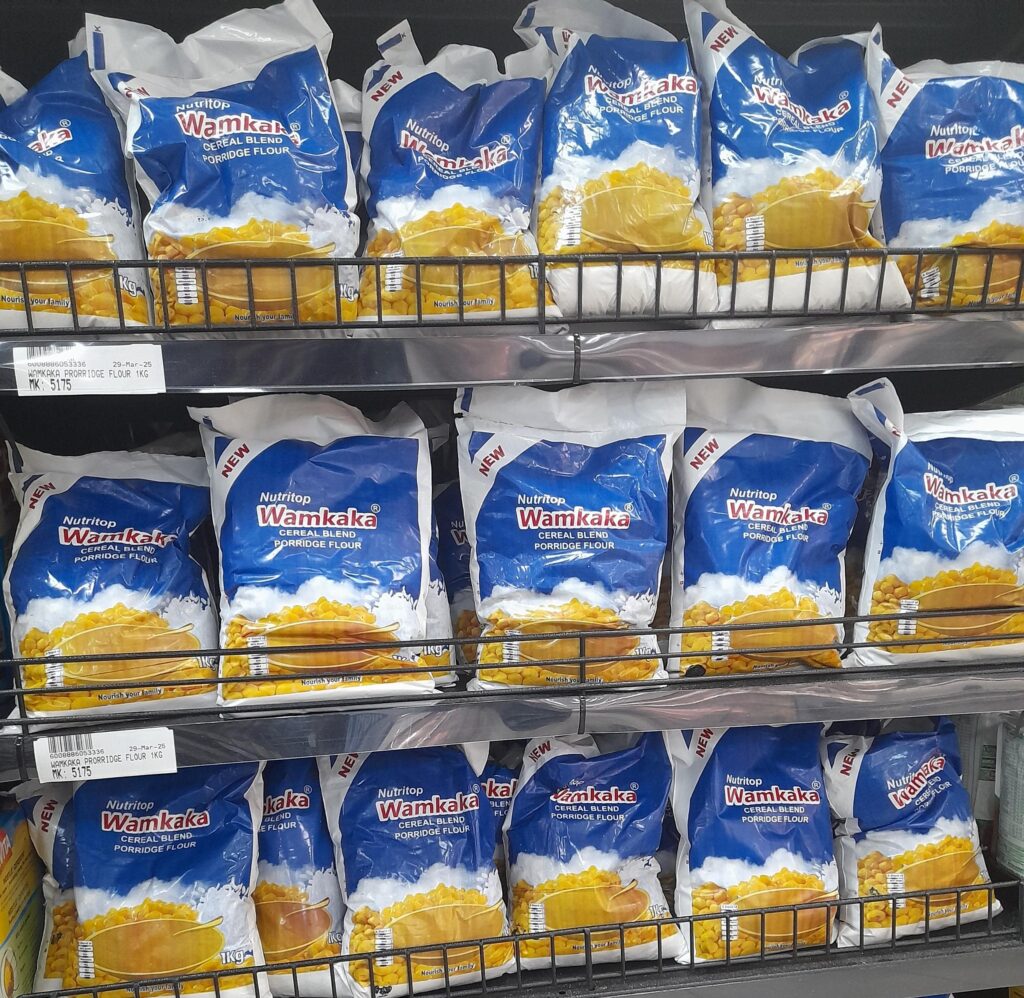By Ulemu Mbengwani
Last year, a newspaper story caught the public’s attention. It revealed the staggering amounts of foreign currency that Malawi spends importing breakfast foods, from cereals to instant porridges. At a time when the nation continues to grapple with forex shortages, the report stirred debate across social media, with many questioning how such a simple meal could drain so much of our scarce resources.
But regardless of where one stands on the figures, one thing is undeniable. Walk into any major supermarket and most breakfast items, especially the easy-to-make ones, are imported. That means a good portion of our hard-earned forex goes into products we consume every morning.
This raises important questions. Are these foods too complex to make locally? Do they require advanced machinery or ingredients we do not have? Or have we simply not tried hard enough to create our own?
It turns out, we can.
Meet Sylvester Chabuka, founder and Managing Director of Mtengo Wakumunda, who is proving that easy-to-prepare, homegrown breakfasts are possible. His company produces nutrient-rich porridge flour made from maize, soya beans, groundnuts, rice, sugar, and skimmed milk powder.
Chabuka explains that the porridge is formulated to combat malnutrition while offering convenience for households. It cooks quickly, helping to reduce the use of charcoal or firewood. They supply households, schools, orphanages, NGOs, and retail supermarkets such as Chipiku Plus and Sana.

“My journey in entrepreneurship spans over seven years, during which I have founded and led initiatives across renewable energy, agriculture, and food processing. I am passionate about tackling malnutrition and energy poverty in Malawi by building sustainable enterprises that create jobs and empower communities,” he says.
“With my background in public health and passion for entrepreneurship, I saw an opportunity to provide affordable, nutritious, and locally sourced food products while also supporting smallholder farmers,” he adds.
His inspiration comes from childhood experiences, when he received relief food items such as porridge flour and witnessed high levels of child malnutrition and food insecurity in Malawi.
“I started with K15,000 in 2018, which I got from my uncle. I used this to make the first batch of 10kg. The feedback was good, and I kept making prototypes until I managed to secure a two million kwacha loan from the Malawi Enterprise Development Fund (MEDF), now National Economic Empowerment Fund (NEEF), in 2020,” he says.
The business was initially supported through a government entrepreneurship program under the Ministry of Agriculture and the New Partnership for Africa’s Development (NEPAD), where Chabuka had access to mentorship and entrepreneurship training at the Small and Medium Enterprises Development Institute (SMEDI).

Since launching Mtengo Wakumunda, Chabuka has celebrated several key milestones. The company achieved Malawi Bureau of Standards certification, sold over 100,000 kilograms of porridge flour, and secured markets with retailers including Chipiku Plus and Sana. The business has expanded its farmer network to over 1,000 smallholders and grown its workforce to 11 employees, reflecting both its commercial success and its impact on local communities.
Despite the progress, Chabuka admits that he faced several challenges along the way.
“One of the biggest challenges was accessing capital to scale production. We also struggled to meet regulatory standards and to gain the trust of retailers. But through persistence, mentorship, and strategic partnerships, we were able to secure certification, expand our retail network, and build strong farmer networks to maintain a steady supply,” he says.
From these challenges came important lessons. “I learned that patience and resilience are key. Building relationships with farmers, regulators, and retailers takes time. Innovation and community engagement are critical, as our inclusive sourcing model supports farmers while maintaining quality and traceability,” he adds.
Chabuka’s ability to penetrate supermarkets and leading shops reflects a deliberate strategy. “We built credibility through certification, consistent supply, and competitive pricing. We also focused on branding, quality packaging, and aligning our product with the health-conscious needs of urban consumers. Building strong relationships with retailers was key,” he says.

Looking ahead, Chabuka sees significant opportunities in the nutrition-focused food sector. School feeding programs, public-private partnerships to fight malnutrition, and exporting fortified foods to the region all present potential for growth. He also believes there is room to scale innovations in instant porridge production while empowering smallholder farmers.
To realize these opportunities, Mtengo Wakumunda plans to scale production capacity from 1,000 kilograms to 10,000 kilograms per month, introduce new porridge variants, expand distribution across Malawi and into neighboring countries, acquire advanced milling and packaging equipment, and strengthen partnerships with donors, NGOs, and impact investors.
For young entrepreneurs, Chabuka has clear advice. “Start small but think big. Focus on solving real community problems and build gradually with resilience. Partnerships, persistence, and continuous learning are essential. Don’t fear failure, it is part of the journey,” he says.
Beyond nutrition, Mtengo Wakumunda is committed to holistic community empowerment, creating jobs, empowering women and youth farmers, and promoting sustainable agriculture. “Our work aligns with Malawi’s Vision 2063 and global development goals. We are building not just a business but a movement to nourish communities and transform rural livelihoods,” he adds.
Chabuka’s journey shows that entrepreneurship can be more than a path to personal success. With determination, innovation, and a focus on community, businesses like Mtengo Wakumunda are proving that local solutions can tackle national challenges, empower smallholder farmers, and inspire a new generation of entrepreneurs in Malawi.





